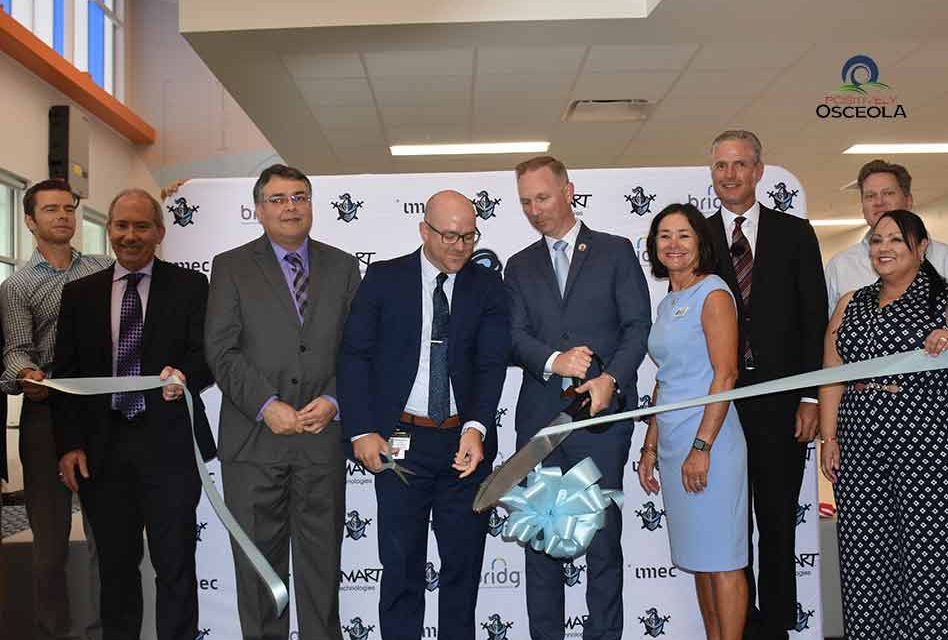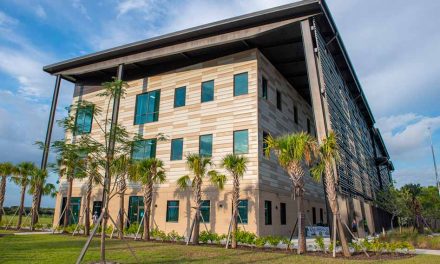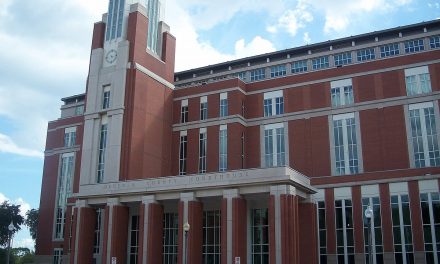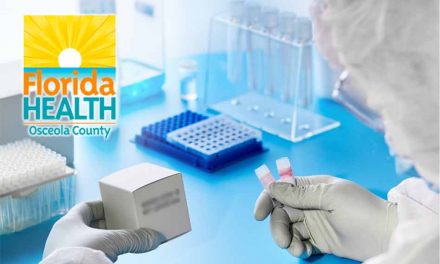NeoCity Academy is now home.
The school that opened last year to freshmen in temporary classrooms on the Gateway High campus swung its permanent doors open to ninth and 10th grade students on the first day of school Monday.
The school, designed to prepare children for the new jobs of the 21st Century – some that don’t even exist yet thanks to ever-changing technology — is on the NeoCity Campus just south of U.S Highway 192 and adjacent to the BRIDG building, where a consortium of American and European companies are working together to further nano-sensor (thinking really, really small) technology.
BRIDG, the School District of Osceola County and, the University of Central Florida have partnered to bring the school to life.
The new school will include hands-on work with BRIDG professionals from industry partners like Harris Corporation and Argonne National Laboratory, to provide more hands-on education and career opportunities for students.
“I’m excited to lead this challenge,” said Principal Michael Meechin, who came over from Poinciana High School two years ago where he was principal to do just that. “We’re going to be changing the landscape of everything we know about teaching and learning. I expect NeoCity Academy to become one of the top performing schools in the nation, and disrupt what we know about traditional education.”
Officials cut the ribbon on the school last week, and students filled it Monday. NeoCity Academy is Florida’s first net-zero energy K-12 public school. It’s STEM (Science, Technology, Engineering, and Mathematics) curriculum will school focus on providing an immersive learning environment in the areas of Advanced Manufacturing/Engineering, Biomedical Engineering, Robotics and Cybersecurity. While doing so, it will use 76 percent less energy than a regular school with savings expected to be over $115,000 a year on energy costs.
Thanks to innovative use of solar panels and other green initiatives, the school will generate more power than it consumes.
For example, the roof of NeoCity Academy hosts 650 self-ballasted solar panels that will lead to 228 kilowatts of energy production. It also includes air purification technology, enhanced lighting, use of natural light, collaboration laboratories and break-out spaces.
In lieu of a kitchen or cafeteria, a food cantina truck will arrive at lunch time each day in order to reduce operational costs.


















